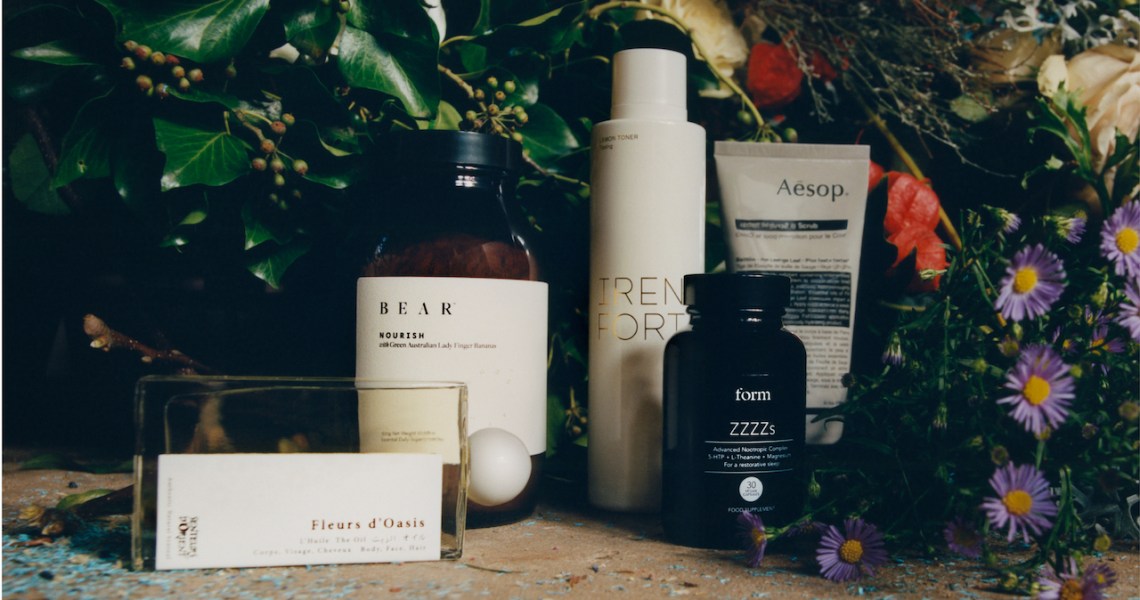Two weeks into the new year, Net-a-Porter is pushing its sustainable efforts forward.
On Monday, the luxury e-commerce retailer expanded its Net Sustain program that launched in 2019 to include beauty for the first time. Twenty-seven beauty brands are included in the merchandising effort, including longstanding Net-a-Porter partners like Tata Harper, Aesop and Dr. Barbara Sturm, as well as upstarts such as One Ocean Beauty, Circumference and Cosmydor. Across beauty and fashion, 100 brands are now featured in the Net Sustain edit.
Though sustainability talk reverberates across many categories, the beauty industry is one culprit that contributes the most to global waste. According to market research firm Euromonitor International, beauty companies accounted for nearly 153 billion units (individual pieces of plastic) in 2018. Forty percent of that contained single-use plastic and then wound up in a landfill.
While Net-a-Porter is amping up its sustainable priorities, it is not creating a unified or singularly defined definition of what it means to be Net Sustain compliant. Rather, to be a part of the program, companies need to have one of seven key attributes: They use “considered materials and ingredients” (one example is to be Cosmos-certified), incorporate “considered processes” (meaning that they minimize environmental impacts and follow certifications like Oekotex and Nordic Swan), reduce waste, use local production, celebrate local craft and community, consider animal welfare or are vegan.
“Terminology with sustainable beauty can mean different things to different people,” said Elizabeth von der Goltz, Net-a-Porter global buying director. “Our taxonomy recognizes that every brand will take a slightly different approach depending on the nature of their supply chain and their end product.”
Newby Hands, Net-a-Porter beauty director, added, “Each individual product has been vetted and fits within one or more of these pillars, and they will be badged according to each pillar so that items can be easily identified.”
For instance, Irene Forte’s Brightening Pomegranate Face Mask is found within Net Sustain under the “Vegan” classification, while Uma Oils’ Pure Calm Wellness Body Oil is located upon clicking on “Craft and Community.” The Net Sustain mission and merchandise will be featured in weekly emails and in social posts, so customers can learn and shop from the brands featured.
“We are listening to our customers who want the option and education to shop responsibly for their environment, if possible,” said Hands.
Sephora, too, has been piloting its own take on sustainable priorities by allowing customers to bring back three containers from brands it carries to receive a 15% discount on Sephora Collection products.
“What we really appreciated about Net-a-Porter is that they had a standard that was more diverse that other retailers, and they weren’t focused on pushing their own agenda,” said Chris Young, co-founder and COO of Circumference. “Their program didn’t just revolve around packaging and recycling, but they are thinking about ingredients and sourcing. They want to highlight brands that show different ways to be sustainable.”
Circumference had been approached by Net-a-Porter last summer, but because Net-a-Porter is its first international partner (the brand is also sold at Need Supply, Forty-Five Ten and Shen Beauty), the indie company used the distribution offer to accelerate key initiatives. That included becoming EU compliant, changing all paper materials to FSC-certified paper materials (that ensures products come from responsibly managed forests), switching all plastic caps and lids to PET1 plastic (which are clear) and figuring out sampling efforts. Sampling within beauty is often considered an additional waste driver, but Circumference will test 10,000 recyclable glass vials to sample its five products, and it will use paper or aluminum-based sachets for products selling with Net-a-Porter and other retailer partners. In 2020, the brand expects to grow 400%.
Kathryn Bishop, deputy foresight editor at The Future Laboratory, expects more retailers to take a stand on sustainability as brands, big and small, grapple with their products’ impact. Much like clean beauty brands, those that have sustainable practices are likely to find themselves in customers’ good graces.
“Luxury consumers will continue their quest for life-enriching, community-based experiences and more sustainable models of consumption in 2020 as a backlash against ostentatious spending gathers speed,” she said.




